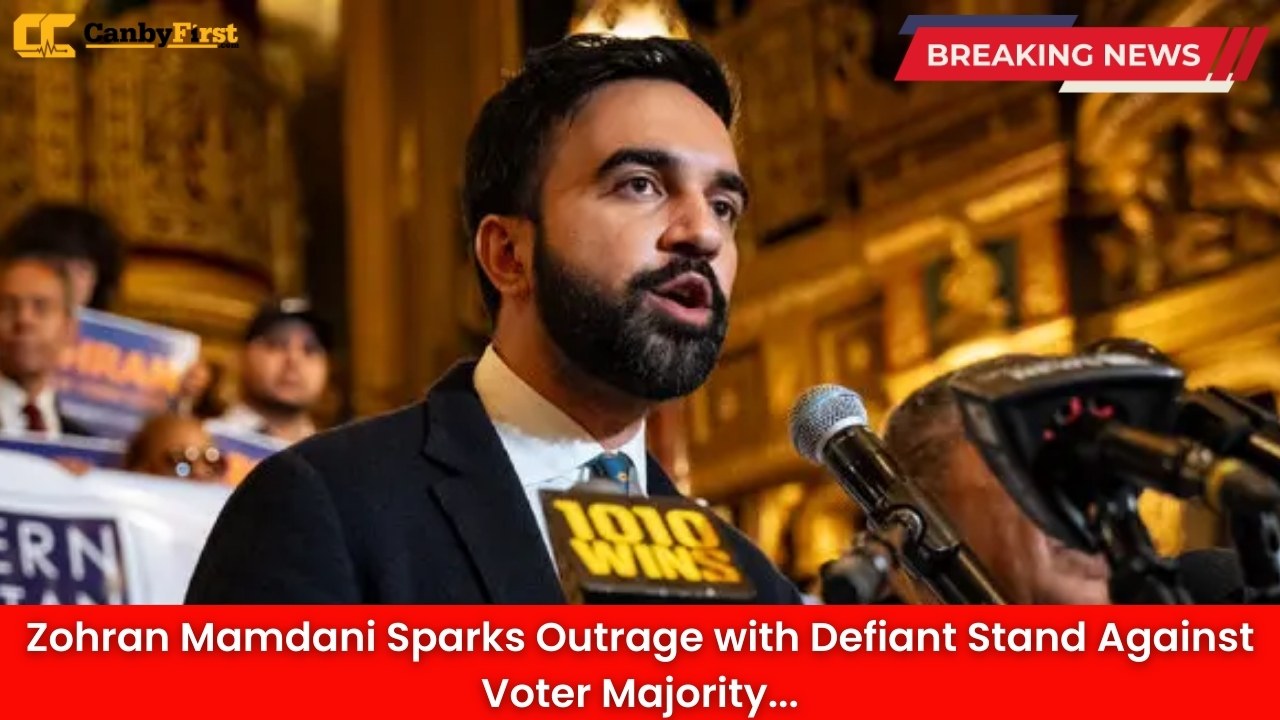Queens Assemblyman Zohran Mamdani has once again ignited a political firestorm, declaring that he will continue to push for a staunchly leftist agenda—even if two-thirds of New Yorkers vote against his vision. His remarks have triggered heated debate across the city, raising questions about democratic accountability, representation, and the role of elected officials in balancing ideology with public will.
Speaking to reporters at a community event in Astoria, Mamdani said that his mission was rooted in “justice and structural change,” arguing that popular opinion should not become a barrier to what he sees as moral imperatives. “If justice demands it, then I will pursue it—regardless of whether 33% or 67% of New Yorkers stand with me,” he stated, drawing both applause from his supporters and sharp criticism from his opponents.
Defiance of Conventional Politics
Mamdani, a leading figure in the Democratic Socialists of America wing of local politics, has long been known for his uncompromising approach. His advocacy for initiatives such as universal housing guarantees, mass transit expansion without fare costs, and broad police reform has captivated younger progressives in New York City while alienating moderates and conservatives.
Also Read
By openly stating that he would advance policies opposed by the majority, Mamdani positioned himself as more of a movement leader than a traditional representative. Critics argue this amounts to abandoning the very purpose of electoral politics. “An elected official is chosen to carry the will of the people, not to impose an agenda no matter the opposition,” one Queens community leader remarked after Mamdani’s statement.
A Divided Democratic Party
Mamdani’s remarks could widen the rift within the New York Democratic Party, where establishment figures aim to balance left-leaning reforms with pragmatism in order to retain statewide electability. His vow, seen by some as radical defiance, underscores the ongoing tension between grassroots progressives and centrist Democrats.
Some fellow lawmakers expressed alarm at the comment, warning it risks alienating swing voters in suburban counties who already view New York City politics as too extreme. Others, however, defended Mamdani, suggesting that past political revolutions—from civil rights to labor rights—began with minority positions that faced strong resistance before shifting public opinion.
Public Backlash and Support
On the streets of Queens, reactions were polarized. For some residents struggling with rent hikes and economic instability, Mamdani’s defiance was refreshing. “He’s not here to win a popularity contest. He’s here to fight for people like us,” said a tenant rights activist in Jackson Heights.
But others were less forgiving. “He talks about justice, but where’s the justice in ignoring your voters?” asked a disenchanted Astoria resident, who argued that Mamdani’s stance erodes trust in democracy itself. Social media quickly amplified the clash, with hashtags both condemning and praising his declaration trending locally.
What Comes Next
Mamdani’s comments set the stage for a turbulent political season. His critics are expected to use the statement as ammunition in future campaigns, framing him as disconnected from the values of mainstream New Yorkers. Meanwhile, Mamdani appears undeterred, doubling down on his framing of politics as a moral struggle rather than a contest of numbers.
Political analysts warn that this rhetoric may carry consequences beyond one assembly seat, reshaping debates over whether elected representatives should primarily reflect voter sentiment or push society toward what they see as long-term justice. For Mamdani, the path ahead may be steep, but his willingness to stand firm against overwhelming opposition signals that he does not intend to soften his approach.
As New Yorkers brace for the next legislative session, one thing is clear: Zohran Mamdani has made his stance known, and it could redefine the boundaries of political loyalty and ideological resilience in the city’s turbulent political landscape.












